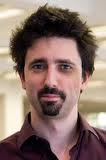Contact
Email:
R.P.Frigg@lse.ac.uk
Website:
Homepage
Further Information
Roman Frigg is Professor of Philosophy in the Department of Philosophy, Logic and Scientific Method, Director of the Centre for Philosophy of Natural and Social Science (CPNSS), and Co-Director of the Centre for the Analysis of Time Series (CATS) at the London School of Economics and Political Science. He is the winner of the Friedrich Wilhelm Bessel Research Award of the Alexander von Humboldt Foundation. He has a PhD in Philosophy from the University of London and masters degrees both in theoretical physics and philosophy from the University of Basel (Switzerland). He held visiting appointments at the University of Western Ontario, the University of Utrecht, the University of Sydney, and the University of Barcelona. For further information visit his website.
Research Interests
His research addresses issues in both general philosophy of science and philosophy of physics. As to the former, his focus is on the problem of scientific representation and the nature of scientific theories. He has published extensively on scientific modelling and representation, and he is currently working on a book on models and theories in science, in which he critically reviews common conceptions of models and theories. His work in the philosophy of physics is concerned with problems that arise in connection with quantum mechanics, the foundations of statistical mechanics, randomness, chaos theory, randomness, complexity theory, probability, computer simulations, and climate modelling. He is currently involved in a research project investigating the nature of probabilistic forecasts in climate models. Through his engagement with chaos theory he became interested in the foundation of statistical physics, a field that is beset with both conceptual and formal problems. His current research focuses on how probabilities are introduced and interpreted in statistical mechanics, and on how our stance on this issue affects our understanding of irreversibility, the approach to equilibrium, and the (alleged) reduction of thermodynamics to statistical mechanics.


